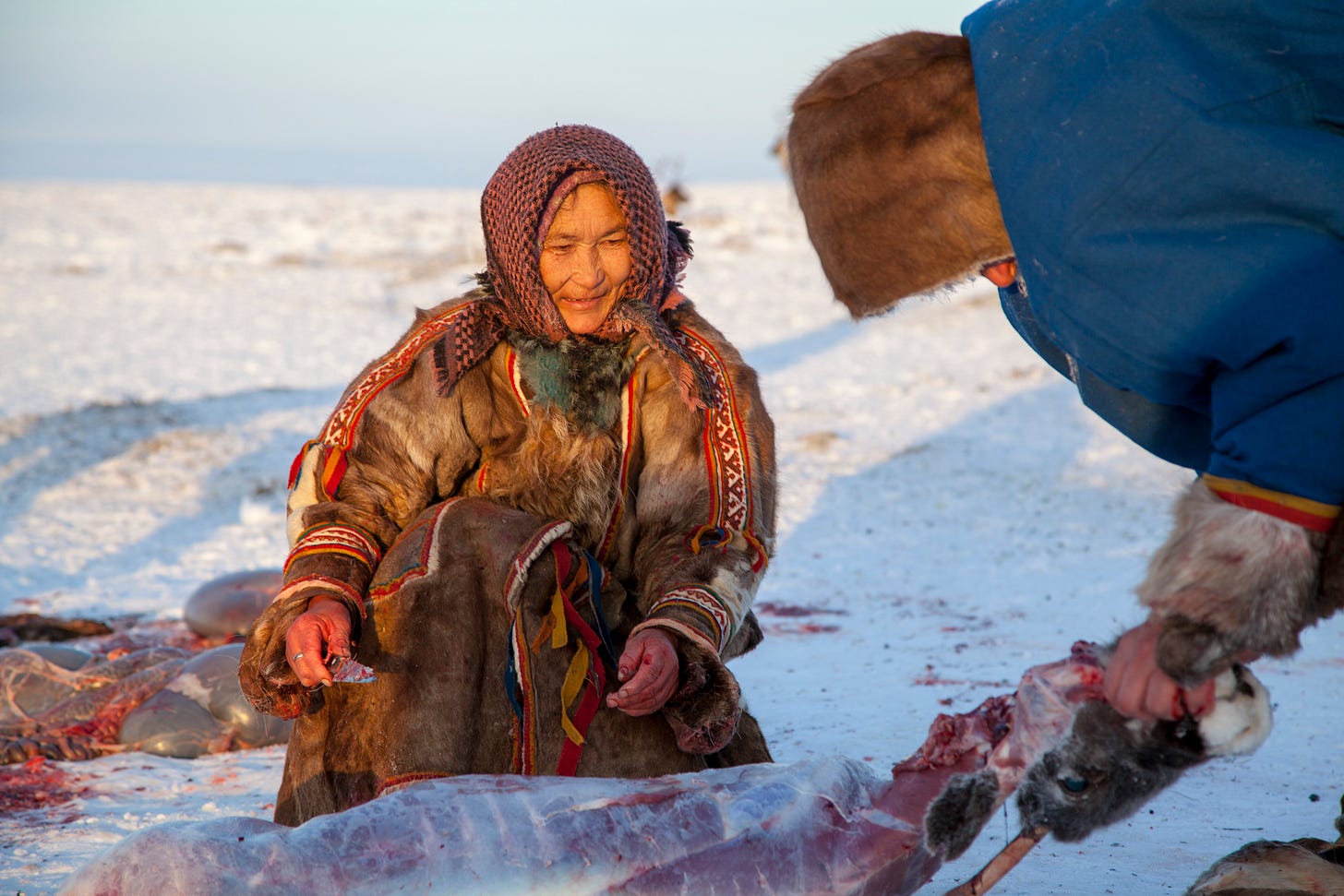Bridging the Divide: Finding Harmony Between Veganism and Indigenous Traditions
Veganism in Culture
Veganism, a lifestyle choice that promotes the consumption of plant-based products while eschewing all forms of animal exploitation, has increasingly become a focal point of ethical and environmental debates across the globe. This movement not only champions the welfare of animals but also underscores the urgency of addressing our planet's sustainability crisis. However, the dialogue around veganism gains layers of complexity when it intersects with the rich tapestry of global cultures, especially those with longstanding traditions that incorporate animal usage.
‘‘In embracing veganism, we honor both cultural diversity and animal welfare, forging a path toward a more compassionate and sustainable future. Let us navigate the complexities with respect, acknowledging the intrinsic connection between our choices and the well-being of all beings.’’
Among the most challenging conversations within this context are those involving Indigenous communities, whose practices and ways of life have historically been intertwined with nature and animals. This scenario demands a delicate balance, compelling us to engage in a thoughtful exploration of the nuanced relationship between honoring cultural heritage and advocating for animal rights.
In this article, we will look at the complexities that arise as we strive for a more compassionate and sustainable world. It becomes evident that our journey is fraught with challenges, requiring us to carefully navigate through the intricate interplay between cultural respect and the imperative of animal welfare. This piece is a follow-up article to last year’s ‘‘The Complex Reality: Not All Human Beings Can Be Vegan.’’
Reconciling Tradition and Ethics
Indigenous cultures often hold complex relationships with animals, intertwining them with spiritual beliefs, food systems, and survival practices. For many, hunting or using animal products forms part of their identity and connection to the land. Imposing veganism through a Western lens can be insensitive and disrespectful, ignoring the unique historical and cultural context (Sentient Media, 2023).
"Veganism Is Not Anti-Indigenous" challenges the view that these movements are inherently conflicting. It argues that they can be allies in fighting colonial structures that exploit both humans and animals (Sentient Media, 2023). Indigenous leadership like Eriel Deranger, an advocate for Indigenous food sovereignty, highlights how aligning with vegan values can empower communities to reclaim sustainable hunting practices disrupted by colonization (Lakota People's Law Project, 2018).
Finding Common Ground
Our pursuit of promoting veganism, fostering respectful dialogue, and embracing diverse perspectives is of utmost importance. By actively listening to Indigenous voices, we gain profound insights into their unique needs and challenges. Through collaborative efforts that honor cultural autonomy while exploring innovative food sources and sustainable practices, we can cultivate meaningful common ground and advance toward a more inclusive and compassionate world. Initiatives like the "Vegan Indigenous Creators" (PETA, 2023) showcase individuals who embrace veganism while honoring their heritage, demonstrating the potential for positive change.
The Way Forward
In our collective endeavor to create a world that is both ethically sound and environmentally sustainable, we must approach the issue with sensitivity and inclusivity. Veganism, as a movement advocating for the well-being of animals and the preservation of our planet, must transcend rigid ideologies and embrace the richness of cultural diversity. This entails engaging in meaningful dialogue with all communities, including Indigenous peoples, whose traditions and perspectives offer valuable insights into alternative ways of living in harmony with nature.
By actively listening to Indigenous voices and acknowledging the specific challenges they face, we can begin to appreciate the nuanced relationship between cultural heritage and the pursuit of ethical living. Moreover, it is essential to recognize that there is no one-size-fits-all solution; each community may have its unique traditions, values, and needs. Therefore, our approach must be collaborative, respectful, and adaptable.
Through collaborations that respect cultural autonomy while exploring alternative food sources and sustainable practices, we can forge a path toward a more inclusive and compassionate future. This requires a commitment to finding common ground, fostering mutual understanding, and supporting initiatives that empower communities to make choices that align with their values and aspirations.
In conclusion, let us heed this call to action: let us embrace diversity, listen attentively, and work together to create a world where cultural tradition and ethical considerations coexist harmoniously, paving the way for a brighter and more sustainable future for all.
Sources:
Sentient Media. (2023, January 25). Veganism Is Not Anti-Indigenous
PETA. (2023, October 20). Vegan Indigenous Creators You Should Follow
General Resources
Books:
Dominion: The Power of Animals in Nature and in Our Imagination by Matthew Scully
Animal Liberation by Peter Singer
Eating Animals by Jonathan Safran Foer
A Billion Hungry Mouths: Feeding the World Without Consuming the Planet by Colin Tudge
Websites and organizations:
Documentaries:
Academic articles:
"The Case for Animal Rights" by Tom Regan
‘‘Why We Love Dogs, Eat Pigs, and Wear Cows: An Introduction to Carnism’’ by Melanie Joy
‘‘Animal Rights: The Abolitionist Approach’’ by Gary L. Francione
‘‘Fellow Creatures: Our Obligations to the Other Animals’’ by Christine Korsgaard
Receive a single informative article daily at 12:01 AM by email. For additional updates, explore my homepage with exciting vegan and plant-based news content and delightful and delicious recipes. Stay connected to the vegan world and all it has to offer.
Visit The Vegan Project Global our Facebook page for more vegan outreach and education.
Also, visit our new YouTube channel
The information on this vegan/plant-based blog is for general informational purposes only. It is not intended as legal, medical, or professional advice. Readers should consult with appropriate professionals for specific advice tailored to their situation. The blog owner is not responsible for any reliance on the information herein.




